A photographer witnesses the birth of a crisis.
More than 400 people have died in Burundi since President Pierre Nkurunziza decided to undermine the country’s constitution and run for a third term. Some were targets of assassinations, like the senior general who was shot dead with his wife on Monday outside of their daughter’s school. Others were simply at the wrong place at the wrong time, victims of the government’s increasing paranoia and ruthlessness. Since Nkurunziza’s announcement a year ago, over 260,000 people have fled to the neighboring countries of Tanzania, Rwanda, Uganda, and the Democratic Republic of Congo. Refugee camps are overcrowded, food is scarce, and aid agencies are struggling to get the world’s attention. Photographer Alberto Maretti spent a month in the capital Bujumbura and came back with images of a little-covered crisis that is spiraling out of control.
Roads & Kingdoms: Why did you decide to go to Burundi?
Alberto Maretti: I’ve always been interested in the history of the African continent, particularly in the Great Lakes region, and its evolution from colonialism to today. After a civil war that lasted nearly two decades, Burundi was about to reach a certain stability, though some problems still remained. When President Nkurunziza decided to run for a third term in 2015, it destabilized the fragile balance that the country had managed to reach after the end of the war. When the first demonstrations against the renomination of Nkurunziza took place, I was working in Colombia, and a possible coup was already in the air. It took place in May, and failed. I continued to follow the events in Burundi until I was able to travel there in February 2016.
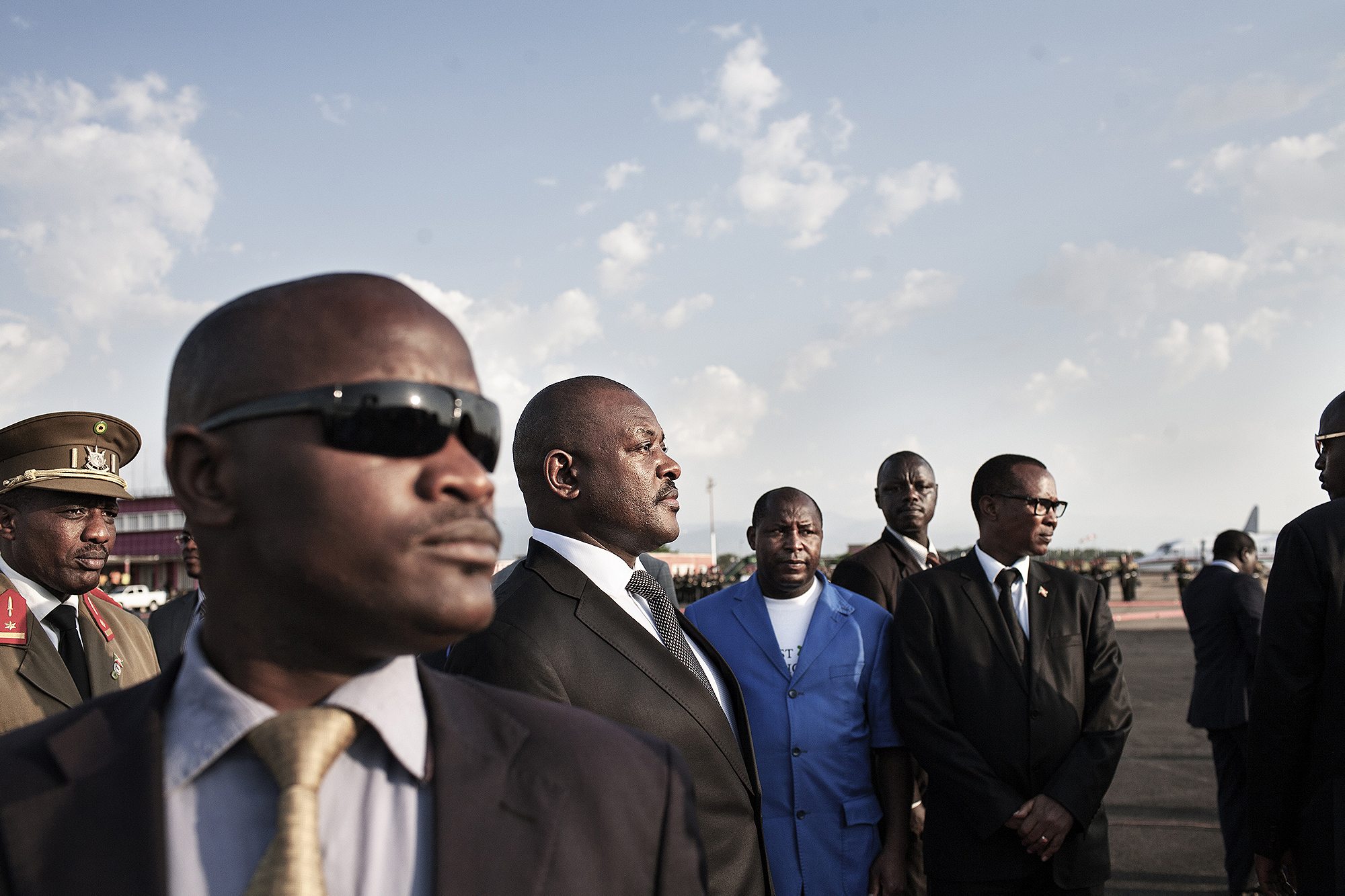
R&K: What were your first impressions of Bujumbura?
Maretti: Bujumbura is sort of a quiet city. But despite the appearance of a certain stillness, you can sense the tension. Along the road that leads to the city center from the airport, I couldn’t help but notice the many checkpoints. There were police pick-ups everywhere. It felt like the city was very tightly controlled, and tension rose during the armed attacks that were quite frequent and spread out throughout the city. After sunset, the city was plunged completely in the dark because the power was out every night. Arbitrary arrests took place in many neighborhoods, which made the situation very difficult to work in. I was never able to work at night, despite many attempts. Very often in the morning I would meet people to get information about what had happened: deaths, injuries, and arrests by the police. Unfortunately, I did not have the opportunity to travel much throughout the country, except in the northern region on the border with Rwanda, but in my experience the difference between Bujumbura and rural areas is the different perception that people have of the crisis: outside the capital, it is felt with less intensity. Attacks are less frequents and there are no round-ups. The flag of the ruling party is much more present there, and people have fewer ways to learn about the complexity of the crisis.
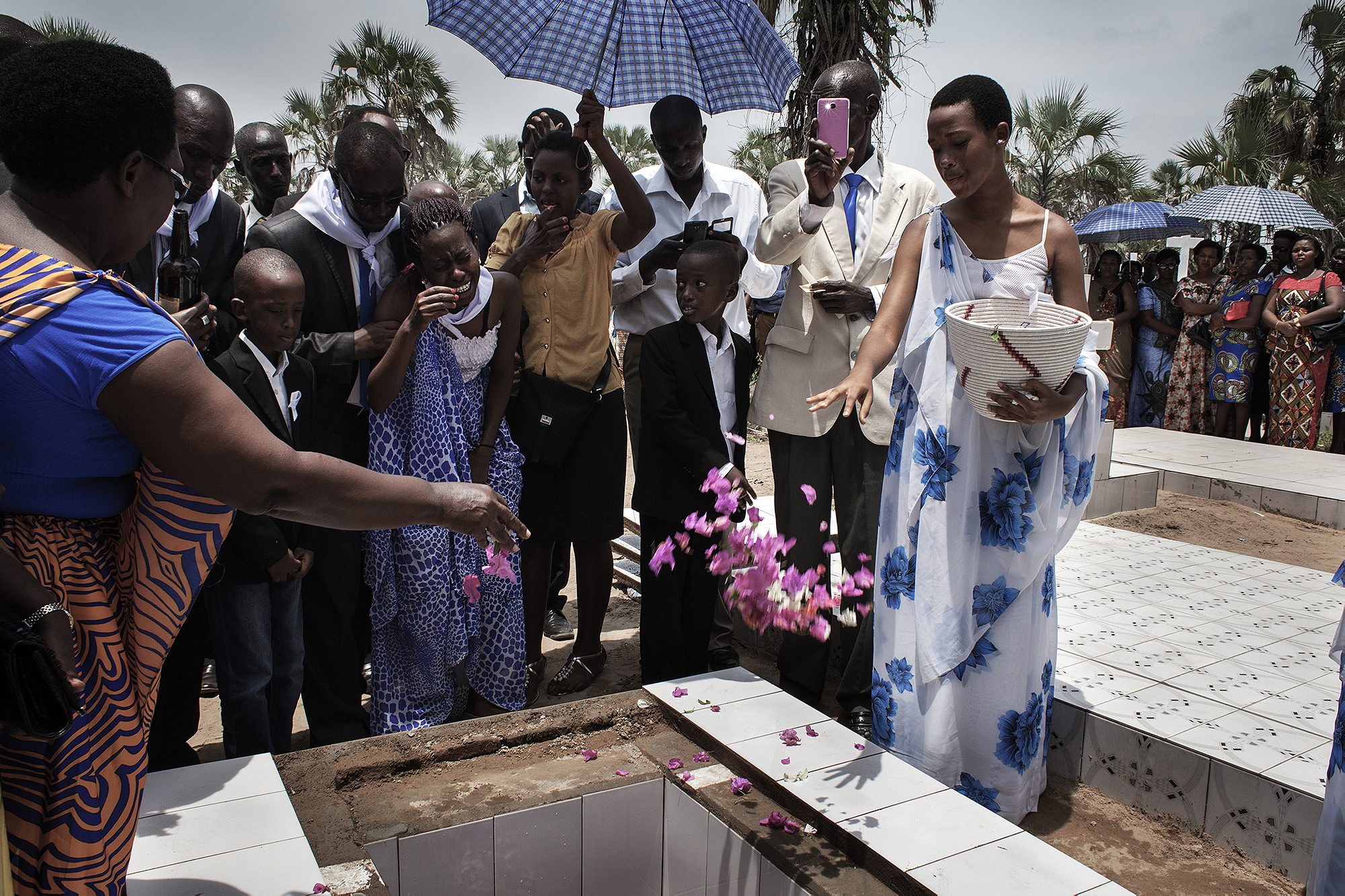
R&K: How did you start reporting this very complex story in a country that you had never been to before?
Maretti: I started slowly. The first difficulties were entering neighborhoods considered subversive. I realized the impossibility of taking pictures undisturbed, even in the street, although I had a regular permit to do my job. There are a lot of risks when it comes to getting in touch with victims of the conflict. It was challenging because I had to work very fast. Sometimes I was given just a few minutes for interviews. The people I talked to were scared of being seen by the police in presence of a foreign journalist so we always had to plan our meetings in advance, which prevented me from documenting several situations. My intent was to offer a broad cross-section, and also to photograph the less obvious consequences of the crisis.
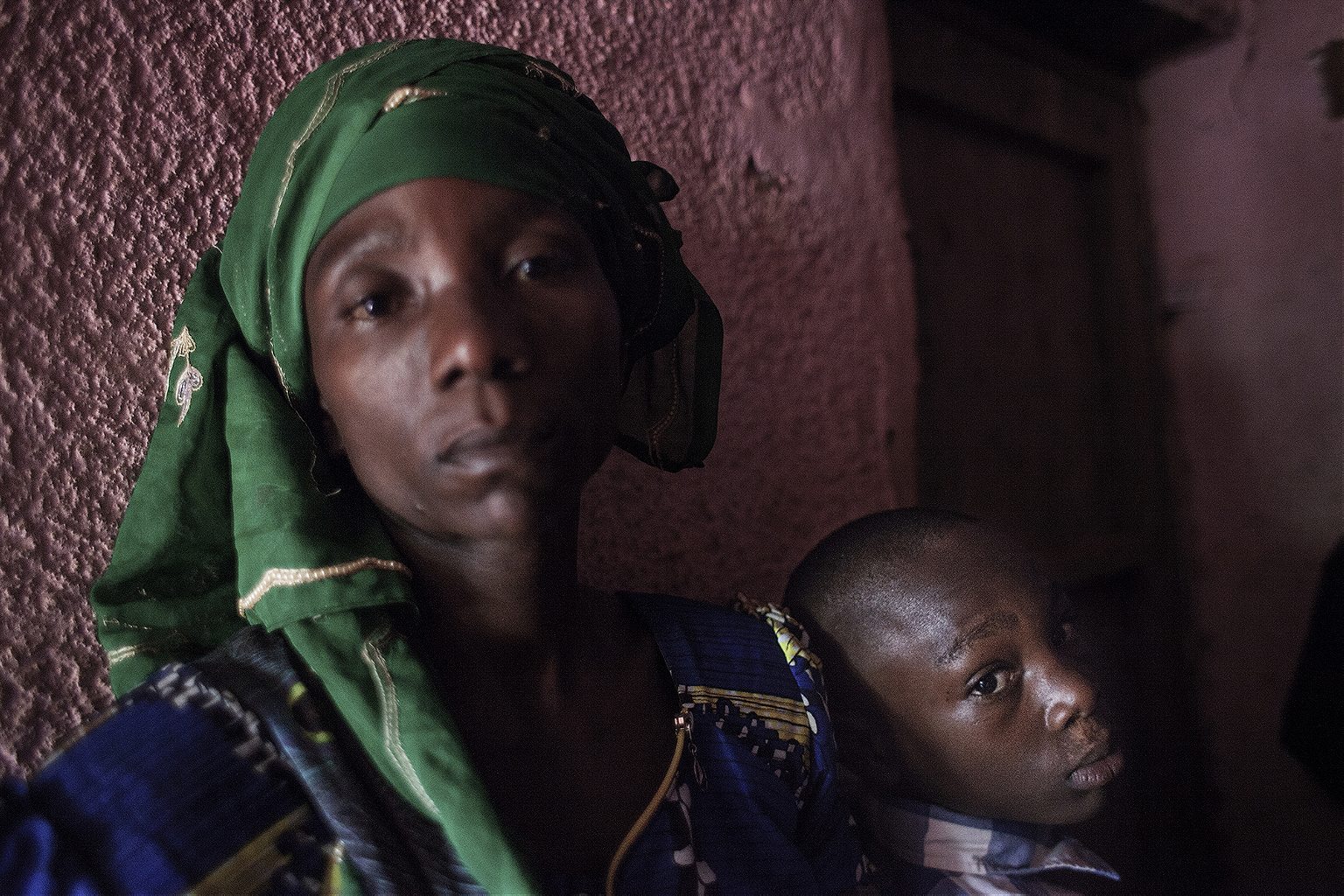
R&K: Like what?
Maretti: The consequences on the economy and daily life, for example. One day I went to a district half an hour away from Bujumbura where two makeshift camps were set up after a landslide occurred in November. Speaking with the people, I found out that they had not been receiving any help from the government for the past two months. They were completely left to themselves. The very first thing I saw upon my arrival at the camps was the funeral of a five-year-old child, dead from malaria because his family couldn’t pay for healthcare. Another example is the school system. Since the beginning of the crisis, the school supplies from the government have decreased to the extent that pupils have to share their books in groups.
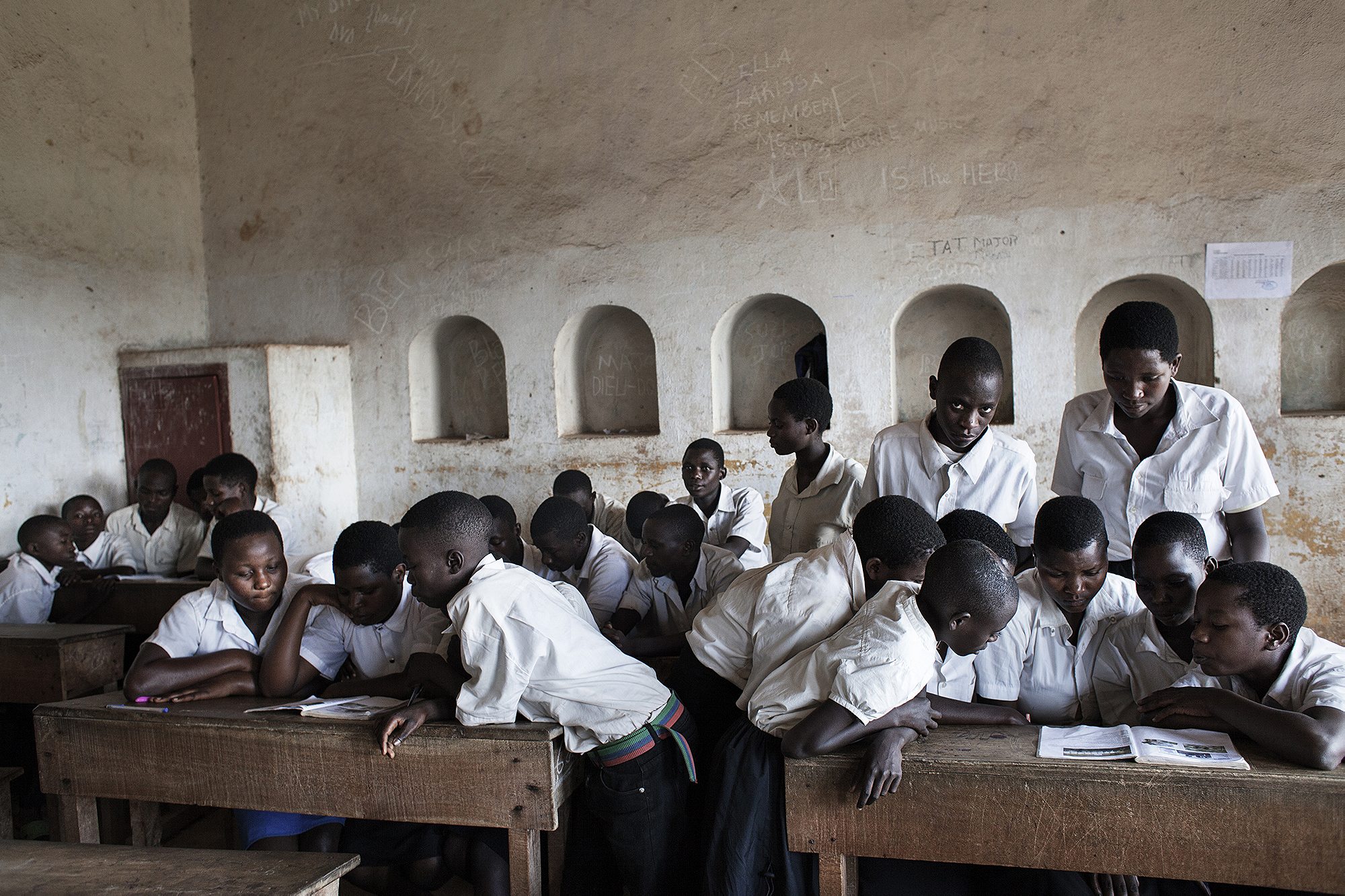
I realized the sense of fear that the system had established in their minds
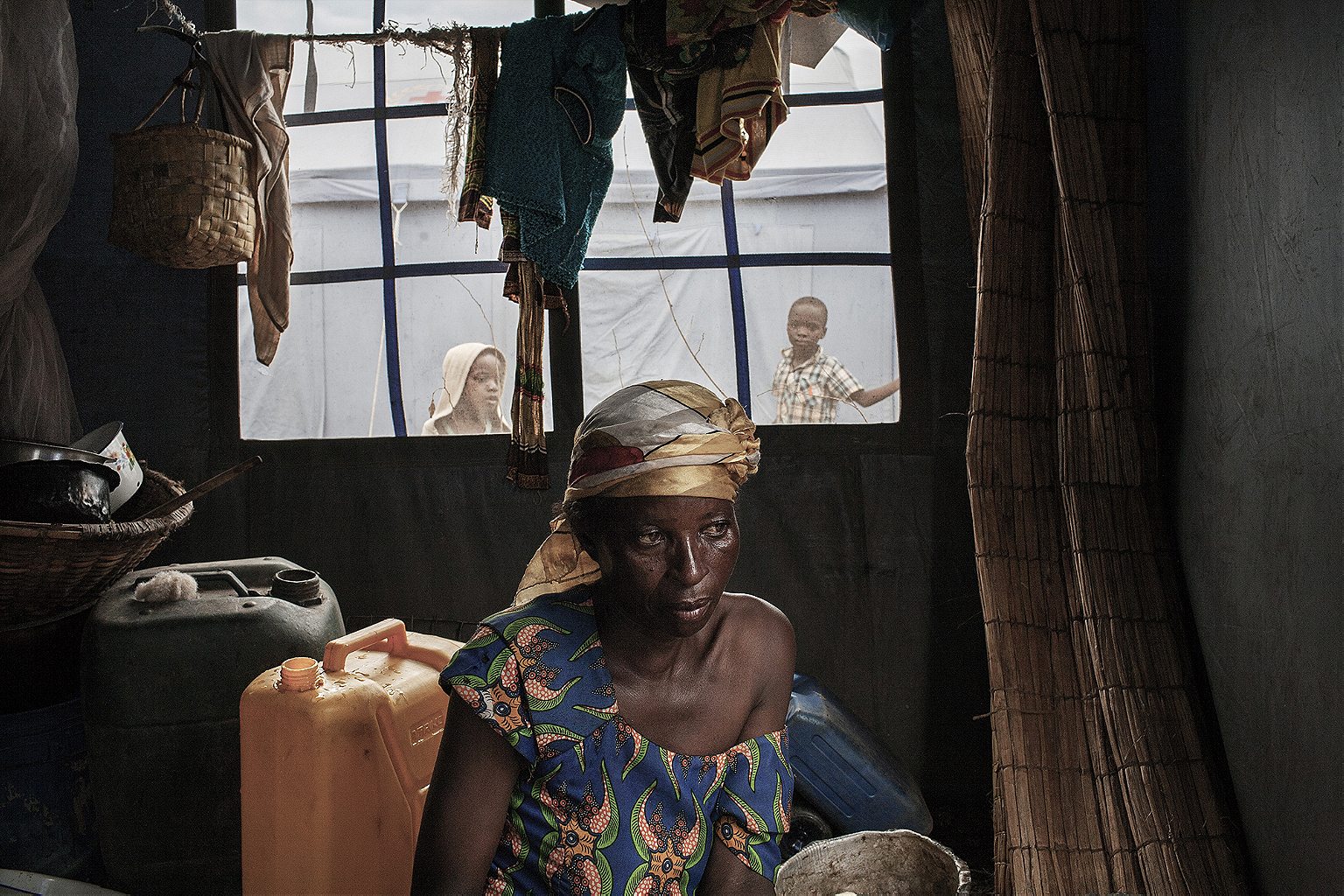
R&K: Can you tell us about the characters who shaped your understanding of the story?
Maretti: There have been so many. From the people in the poorest neighborhoods to the upper echelons of the Burundian civil society who met me in five-star hotels. I tried to ask the same questions to all the parties involved in the crisis, to understand their vision of what was happening around them. I tried to get in touch with the relatives of people who had disappeared, had been arrested or tortured by the police. I managed to meet some of them in safe places where I could conduct short, anonymous interviews, personally providing their safety. The more I talked to these people, the more I realized the sense of fear that the system had established in their minds. A particularly significant meeting was with a man whose wife, a teacher, was found dead in the city center after disappearing from her home, on charges of being a spy. During the interview, the man said that he had never sought justice, knowing full well that he would not have any.
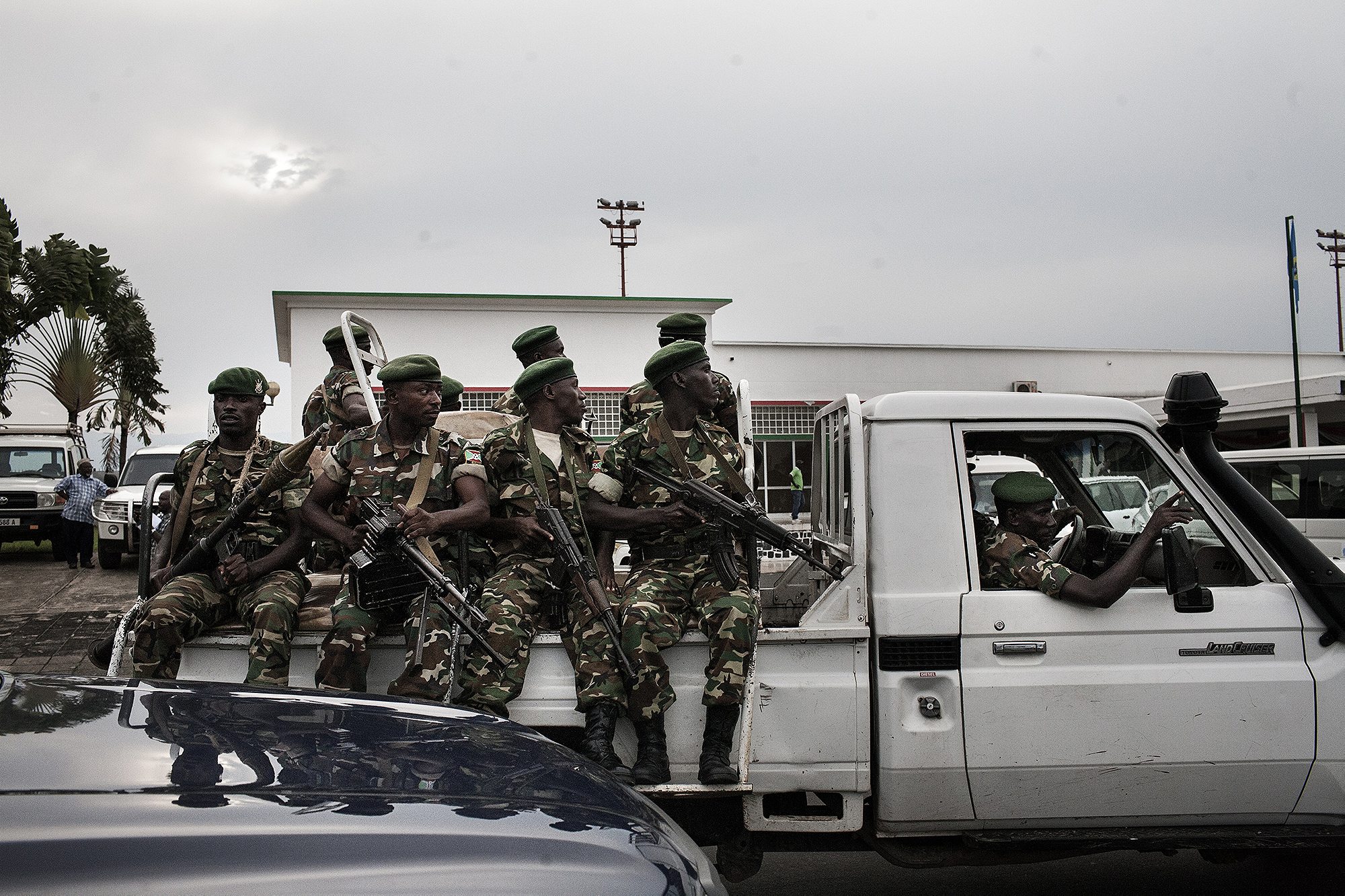
R&K: Were you able to spend time with the army or with the rebels?
Maretti: I wasn’t able to be in close contact with the rebels or with the army or police because it was prohibited. It isn’t possible to document patrols or arrests. I also failed to document the big roundups because it’s forbidden to document any action from the police. Despite my requests, I was never allowed to see them operate. The few times that I could photograph the army and the police was during the attacks that occurred in public places. The police have a spokesperson who communicates about both the successful operations and the extent of the damages done by the so-called criminals. I was interested in covering all the sides of the story, so whenever I saw this in the news, I tried to go on the spot. As for the rebels, I never got to meet them outside the official arrests. In the last year, at least three armed rebel groups have emerged in the country.
Journalists, activists, and politicians are gathering information acquired secretly in Burundi
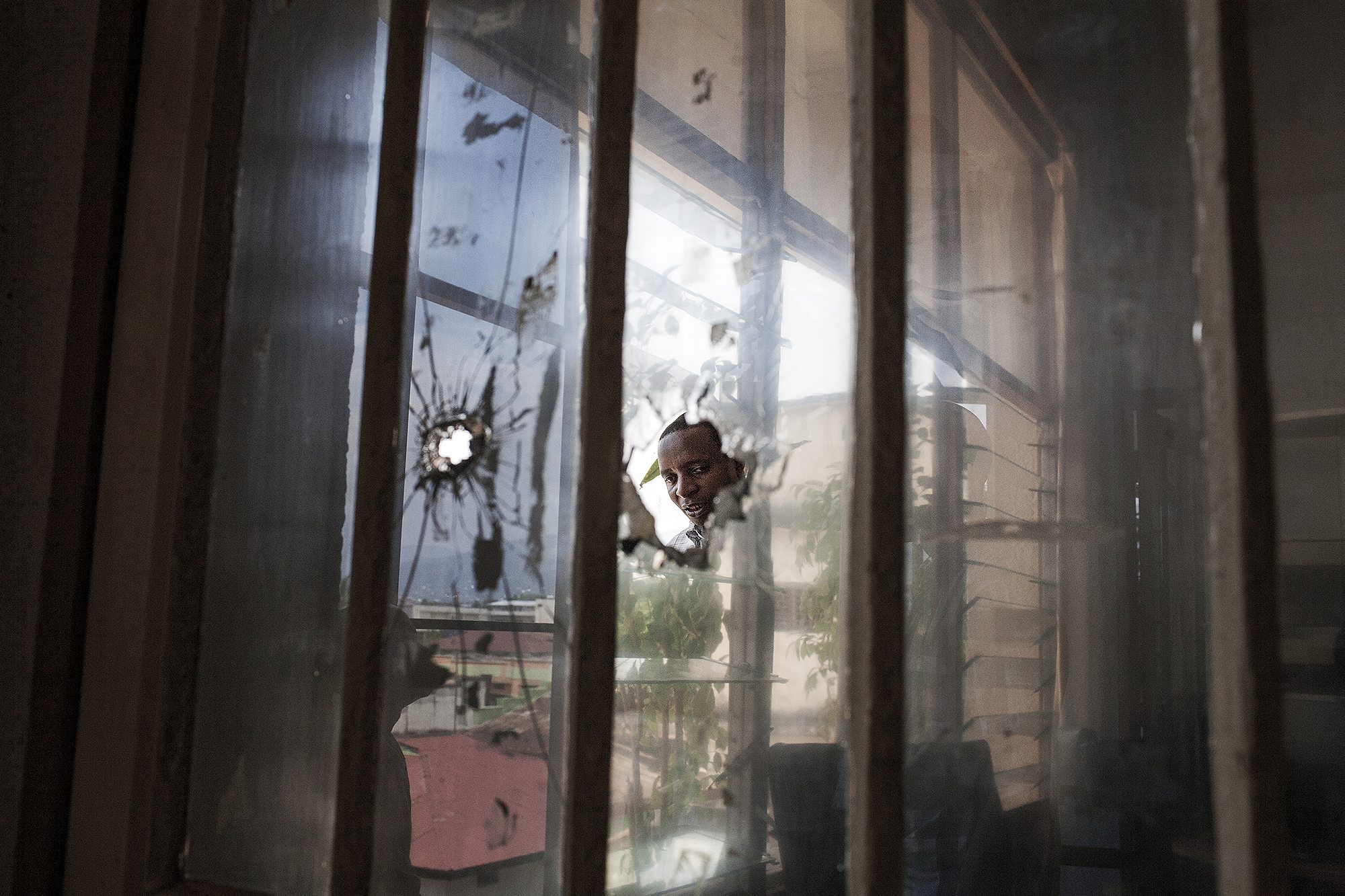
R&K: Are local journalists able to work at all in the country?
Maretti: In 2015, all the radio stations, both public and private, were banned and destroyed. Many journalists are now in Rwanda and other neighboring countries because of persecutions related to the crisis. Luckier exiles, who had money or relatives willing to welcome them, have ended up for the most part in the Rwandan capital of Kigali, where journalists, activists, and politicians are gathering information acquired secretly in Burundi, and discussing how to draw attention to the crisis and stop the violence. During my stay, two radio stations had been reopened. But when I tried to visit the office of a radio station that had been burned down, I was blocked by the Documentation, a special intelligence unit directly linked to the government, who took all of my equipment. They released me and returned my cameras after two hours, warning me to be careful for security reasons. The local press works precariously, and social networks, such as Facebook and Twitter, play a big part in relaying the news in Burundi.
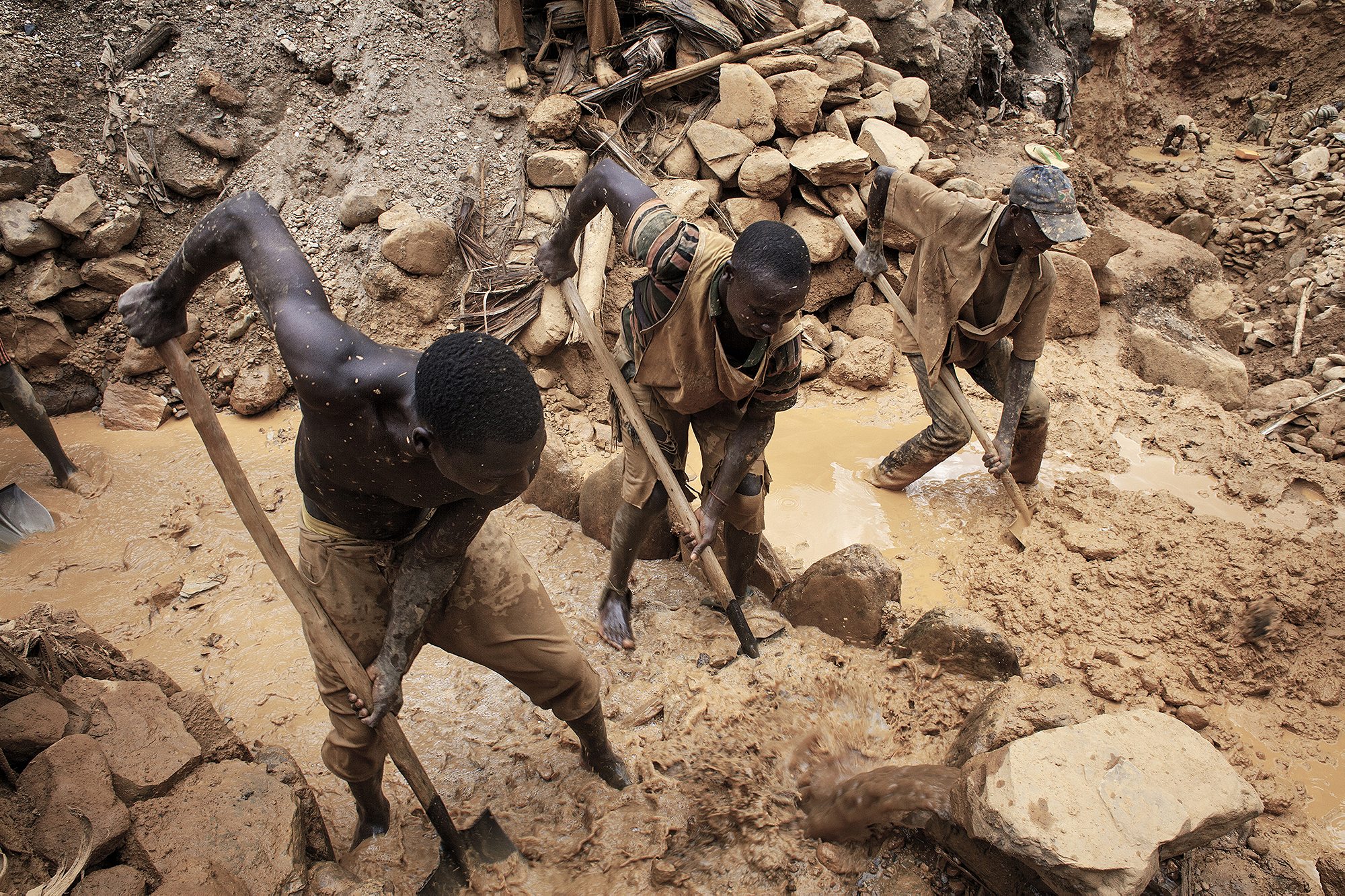
R&K: Were you involved with NGOs in order to get better access to the story?
Maretti: No. I went to a local clinic, which receives money from a foreign foundation. Like many others, it doesn’t get any funding from the government. When I wrote to various Italian NGOs operating in Burundi, they answered that they had to keep a low profile and could not cooperate with journalists.
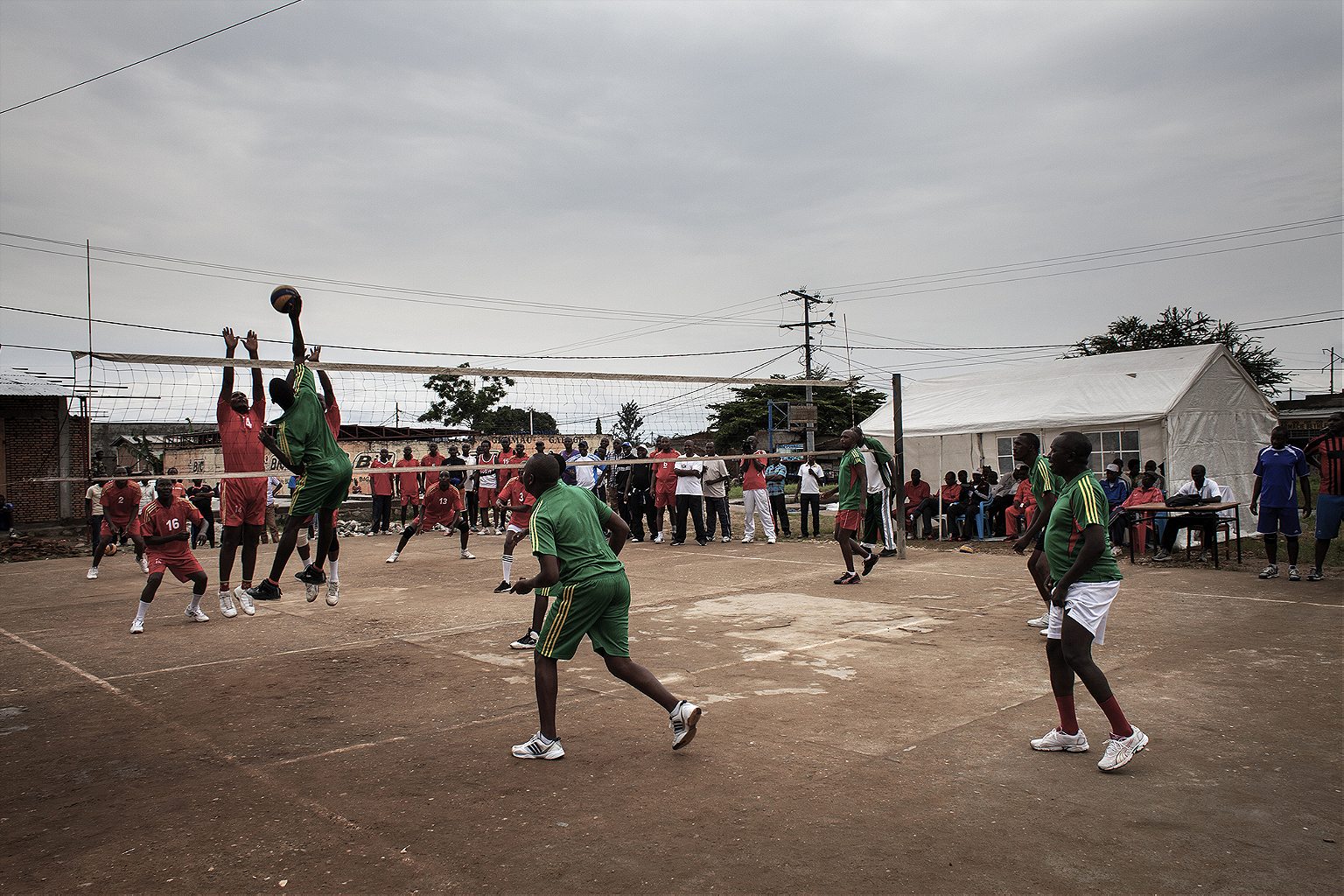
R&K: How has the situation evolved since you started covering it?
Maretti: The situation has not changed much since I left in March. In April there were several mass arrests and attacks, including at the highest levels— evidence of how the crisis has spread even within the armed forces. Lieutenants and colonels of the army were killed. Just last week on April 21, an estimated 150 men and young women were taken away by the police with no declared reason. These are only some examples of what has been going on in Bujumbura. Recently the International Criminal Court announced it will launch a preliminary inquiry into alleged crimes committed in the country. To give you a figure of the violence, the office of the UN High Commissioner for Human Rights estimates that at least 430 people have been killed in the last year, at least 3,400 people have been arrested and over 230,000 were forced to seek refuge in neighboring countries.
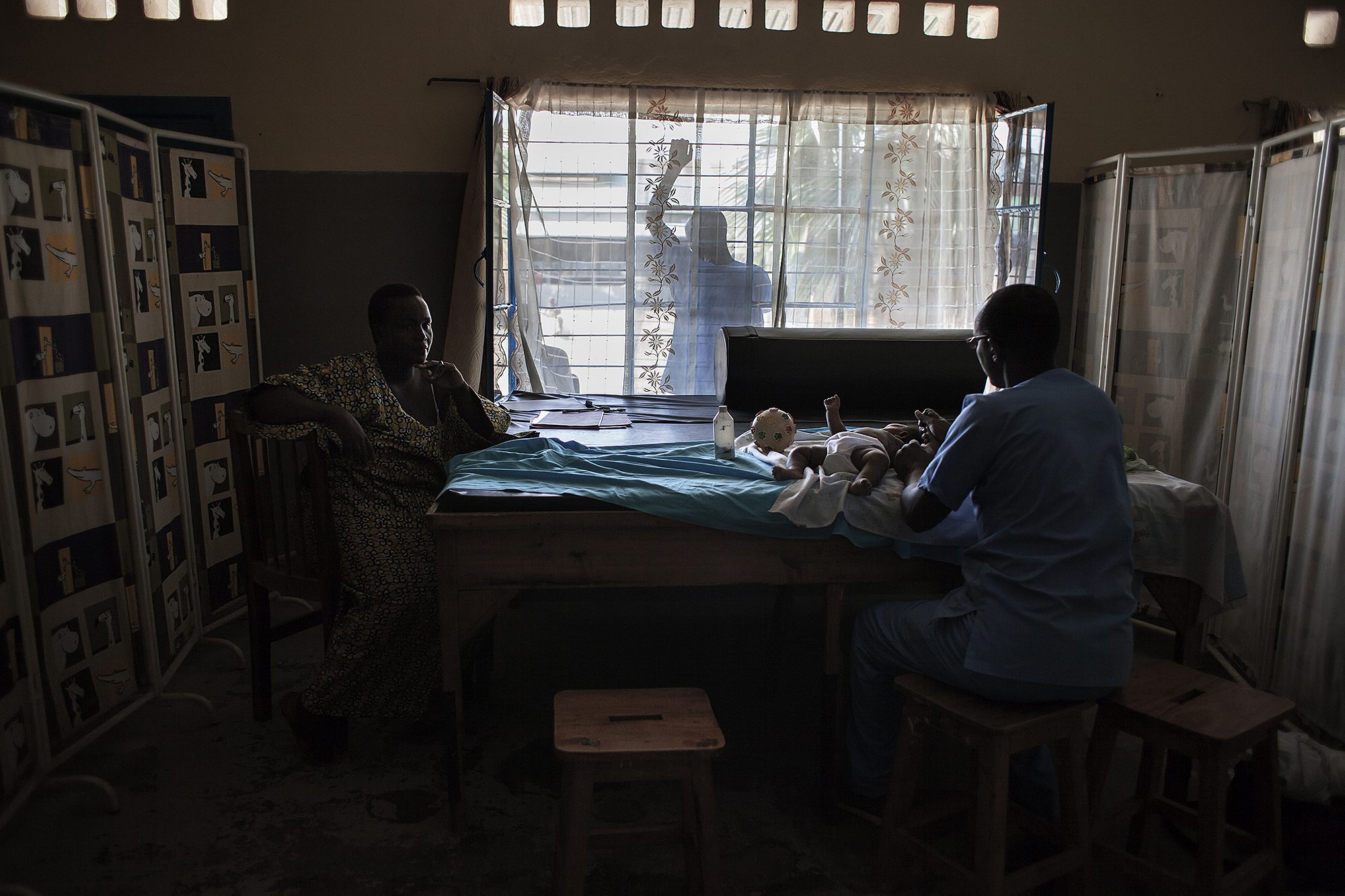
R&K: Is there any hope for the situation to get better?
Maretti: Since I left the country, it seems that it’s getting deeper and deeper into a spiral of violence with no way out. The recent mass arrests and attacks, which also involve people in the army who have criticized Nkurunziza’s policies, leave little hope that the situation will be resolved. The number of refugees is still rising, along with arbitrary arrests. Speaking with many people, I was told that poverty in the country is increasing. Many have lost their jobs because this political crisis is also damaging the fragile economy of the country.
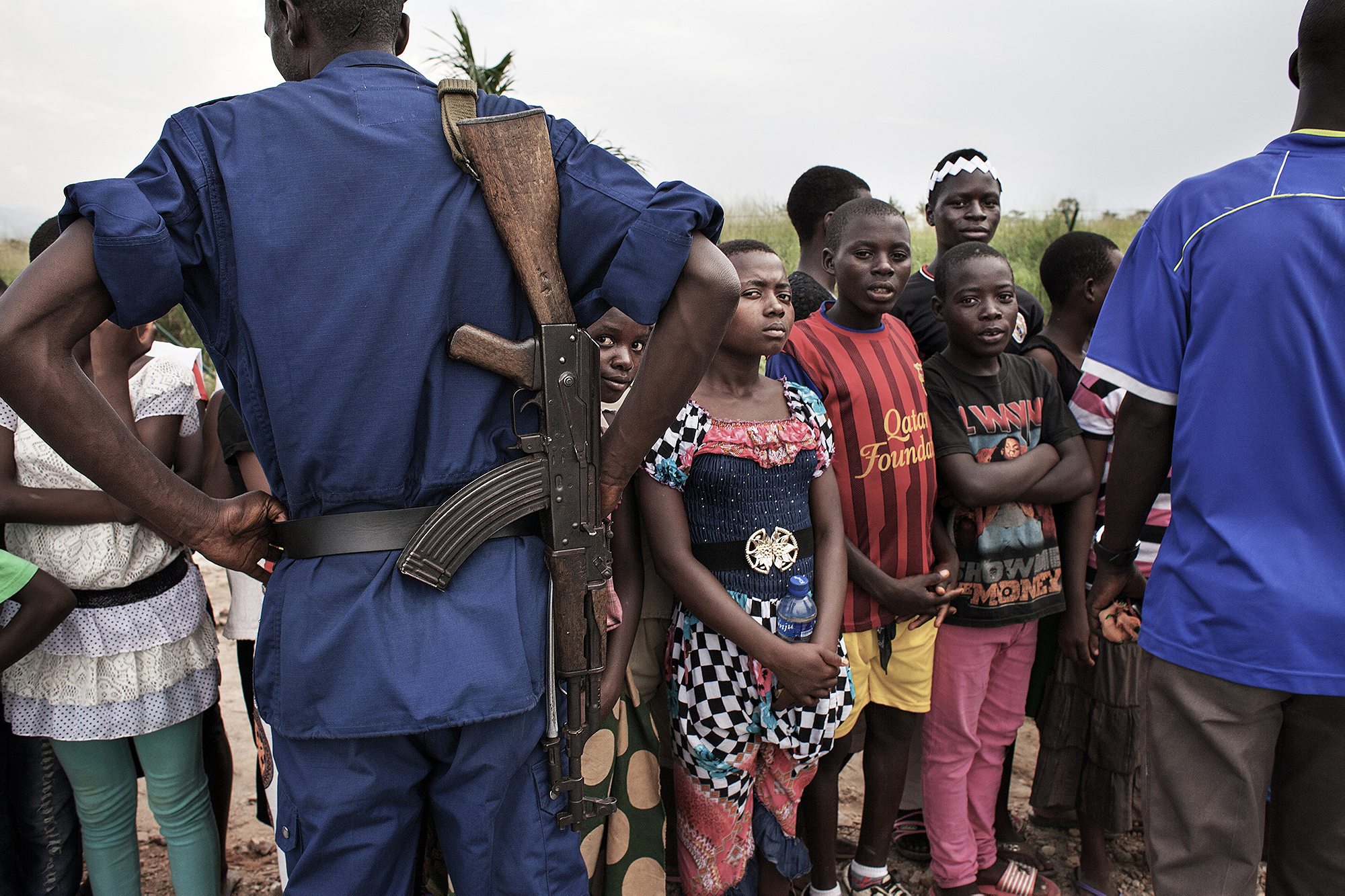
R&K: Which foreign powers are involved in the crisis? Are any of them helping make the situation better?
Maretti: I attended a conference held by Tom Perriello, America’s special envoy for the Great Lakes region, who promoted a dialogue between the parties, presenting possible solutions through mediation. But in a second conference held in April in Bujumbura, he retracted his recent declarations, accusing the government of duplicity and of being the driving force of the crisis, rather than the victim. During the visit of UN Secretary General Ban-Ki Moon I attended, president Nkurunziza declared he would release some 2,000 prisoners held because of the crisis, but this hasn’t happened yet. The UN is planning to send a contingent of 3,000 officers to keep the population safe in the capital after Nkurunziza refused the African Union’s proposal to send troops into the country. There have been several attempts of dialogue by an African delegation of presidents from Mauritania, Gabon, Senegal, Ethiopia, and South Africa with no certain outcome.
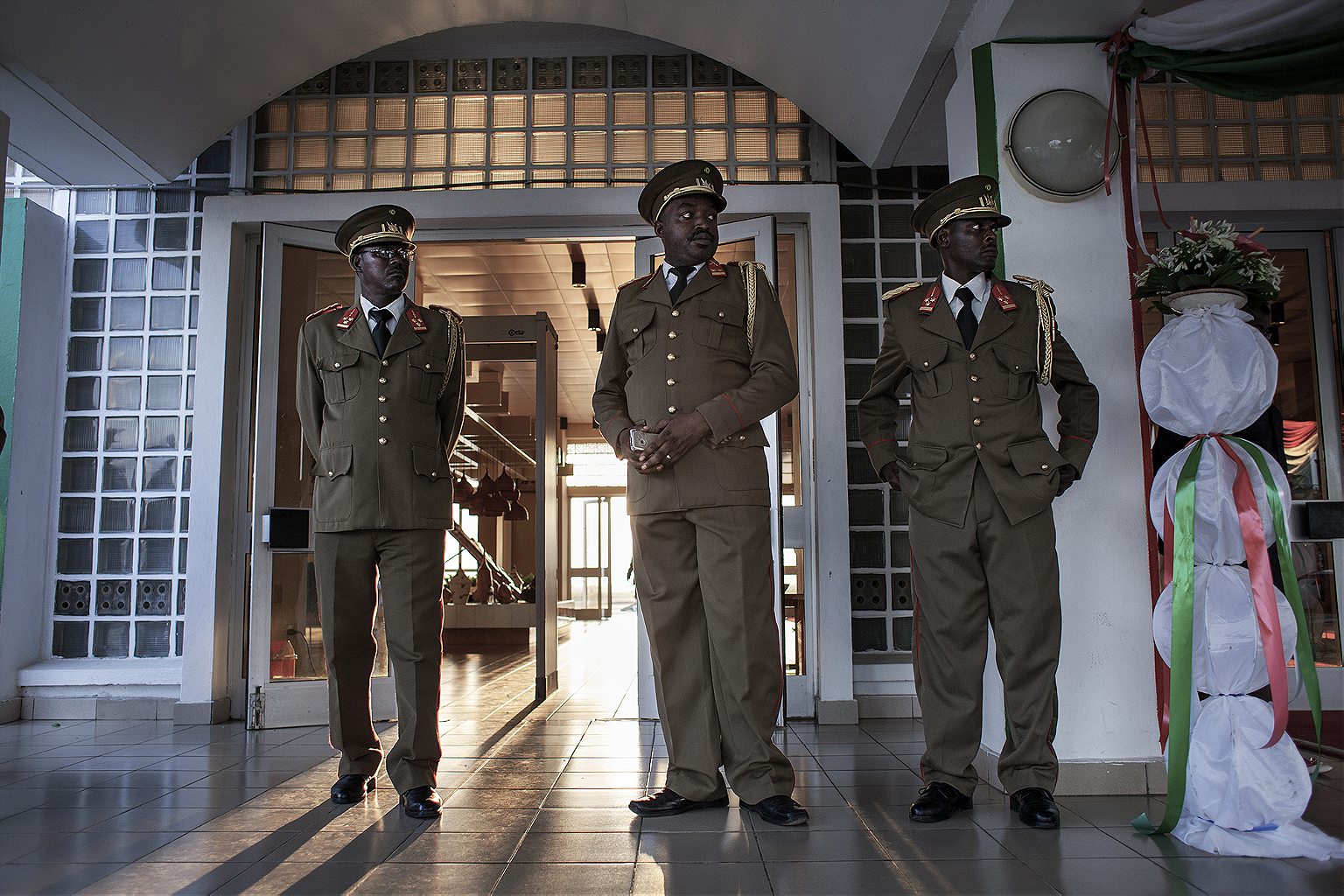
R&K: What do you think this crisis says about Central Africa today?
Maretti: These days, similar things are happening in different countries in the region. The Rwandan president Paul Kagame, accused by Nkurunziza of sabotaging the stability of Burundi, is running for a third term in 2017. The Ugandan president Yoweri Museveni is applying for a fifth term, while in Congo-Brazzaville, president Denis Sassou Nguesso announced his candidacy for a third term. Demonstrations there ended in violent clashes. Many countries are moving away from actual democracy. Burundi is just one example of what appears to be a very widespread tendency in Central Africa.